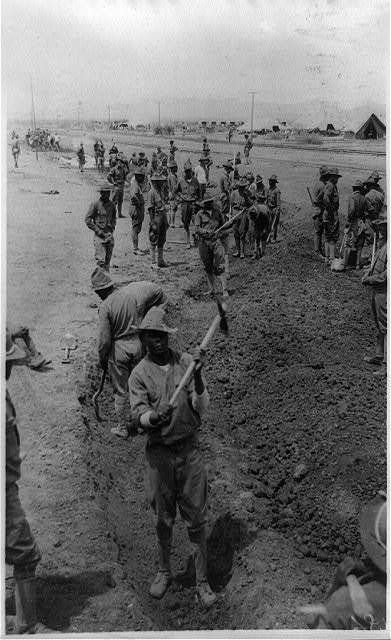“Without a struggle, there can be no progress.”
- Frederick Douglass, abolitionist
Unwelcomed Service:
The U.S. Military, since the war for independence, was segregated. This was despite the fact that African-Americans were risking their lives just the same. Blacks were relegated to menial tasks such as digging graves or put in segregated divisions where they could be further discriminated against in how they could participate in combat.

African-American Soliders Digging in the Mexcian-American War, courtesy of Picyl.
Following the shocking Japanese ambush at Pearl Harbor, African Americans were just as invigorated to fight for their country in World War II as Whites. The segregation, however, coupled with a wide array of discrimination tactics made it difficult for African-Americans to fully act on that desire. There was a barrier. World War II, though, would create a “perfect storm” for Blacks to agitate for their rights.
Double V:
Victory at home and abroad. That was the mantra under which the Tuskegee Airmen would enlist in the United States army. World War II would expedite the destruction of these barriers. The scale of the conflict made it difficult for recruiters to simply turn Black applicants away or delegate them to filler tasks. With World War II as their stage, the Tuskegee Airmen opted to act as a vehicle through which to demonstrate the equal capability of the Black man.
From My Interview With Professor Daniel Hutchinson
In our fight for freedom we wage a two-pronged attack against our enslavers at home and those abroad who will enslave us. WE HAVE A STAKE IN THIS FIGHT...WE ARE AMERICANS."
- Excerpt from the Pittsburgh Courier, February 14th, 1942